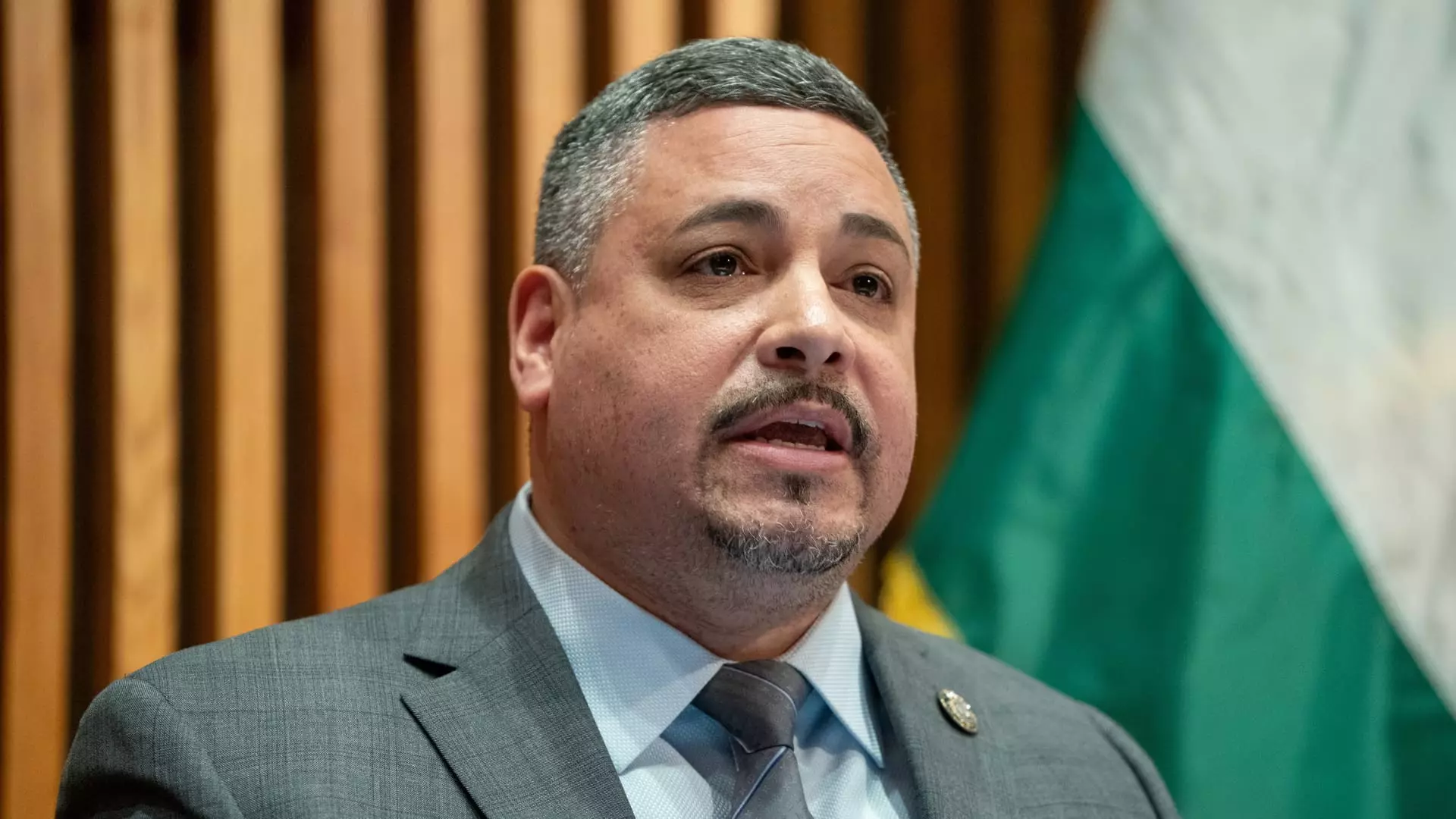The recent resignation of NYPD Commissioner Edward Caban has sent shockwaves through New York City and beyond, highlighting the significant challenges he faced in leading the nation’s largest police department. His stepping down amid a federal investigation into nightclub policing questions the integrity of leadership within law enforcement and raises concerns regarding systemic issues tied to authority and accountability. This article delves into the complexities of Caban’s departure, its implications for the NYPD, and the broader conversations about policing in America.
Appointed in July 2023, Edward Caban made history by becoming the first Latino commissioner of the NYPD in its 179 years of existence. His elevation to such a critical role came with considerable expectations aimed at transforming the department. However, the challenges he encountered almost immediately undermined his ability to fulfill this role fully. Caban’s tenure, albeit brief, was marked by internal and external strife, with allegations revealing a trend of corruption that threatened the integrity of the department.
Caban’s resignation, announced through a memo, reflects a common theme in high-stakes public service: personal integrity outweighing professional ambition. He stated that his focus could not remain on the NYPD while allegations clouded its reputation. Such a decision speaks volumes about the pressure public officials face and illustrates the significant personal toll that leadership within controversial institutions can take.
The investigations surrounding Caban primarily relate to his brother, James Caban, who reportedly operated a nightclub security business under scrutiny. Allegations suggest that clubs paid for preferential treatment from the NYPD through a kind of unofficial liaison role that James may have played, raising ethical concerns about nepotism and conflict of interest. Reports have indicated that this investigation is being conducted by the IRS’s Criminal Investigation division alongside the U.S. Attorney’s Office for the Southern District of New York, demonstrating the gravity of the situation.
The implications of this investigation extend beyond Caban’s personal circumstances. They reveal a systemic issue within law enforcement that often compromises the relationship between police departments and the communities they serve. If proven that officers received promotions or were encouraged to target businesses outside the “favor” network, it illustrates the potential for deep-seated corruption affecting everyday policing practices.
Mayor Eric Adams’s acceptance of Caban’s resignation not only signifies a loss of leadership but also highlights instability within the administration. As the city grapples with its third police commissioner in less than three years, it raises critical questions about the operational continuity and vision at the NYPD. Leadership vacuums can lead to inconsistent policy implementation, diminished morale among officers, and deteriorating public trust—all factors critical for effective policing.
The appointment of Tom Donlon as interim commissioner suggests a need for experienced oversight during this tumultuous time. However, convincing the community and the rank-and-file officers that the leadership is stable and trustworthy will be an uphill battle. Adams’s administration, already under scrutiny for various investigations, must also navigate public perception while concurrently supporting the mission of the NYPD and fostering a prevailing culture of integrity and respect.
Caban’s resignation could serve as a catalyst for more profound reforms within the NYPD. With heightened scrutiny from both the public and federal agencies, this moment presents an opportunity for the department to reflect critically on its policies and practices. Essential questions about accountability, transparency, and ethical policing need to be addressed to restore public confidence.
Moreover, the conversation should extend beyond Caban’s personal resignation to encompass the structural issues that lead to corruption and misconduct. This includes evaluating recruitment processes, oversight mechanisms, and community relations strategies. Building a police force that not only enforces the law but also embodies integrity and accountability to the public will require a concerted effort across various levels of government and community engagement.
The resignation of Edward Caban is more than merely a personnel change; it serves as a reflection of larger issues within law enforcement. As New York City navigates these turbulent waters, the hope for a more accountable and transparent police force remains a critical conversation, necessitating engagement at all civic levels.

Leave a Reply